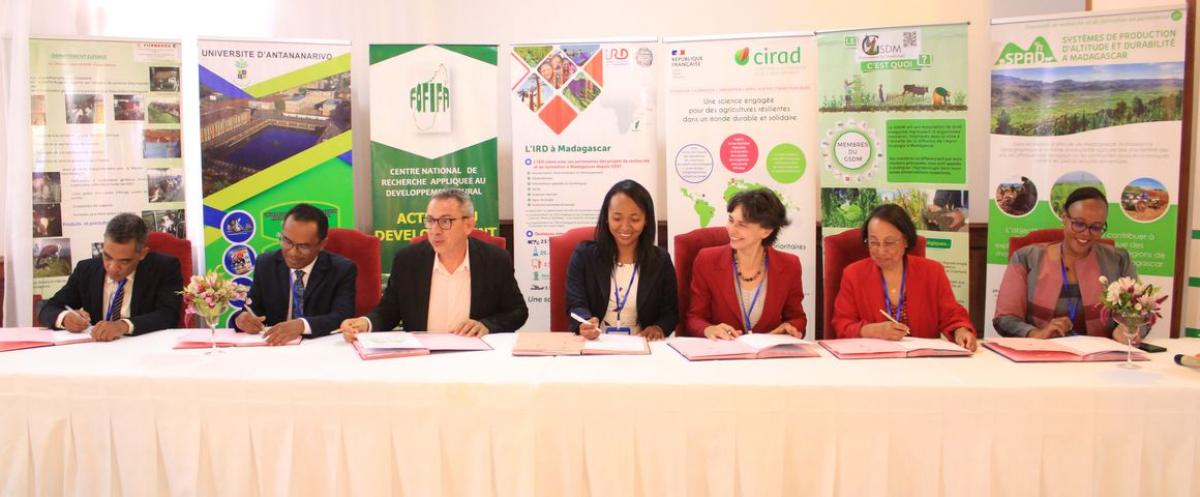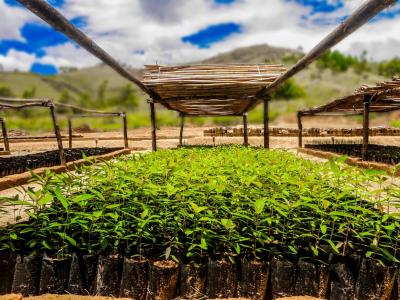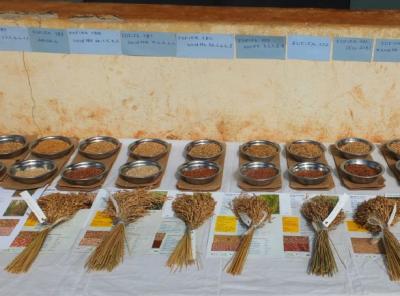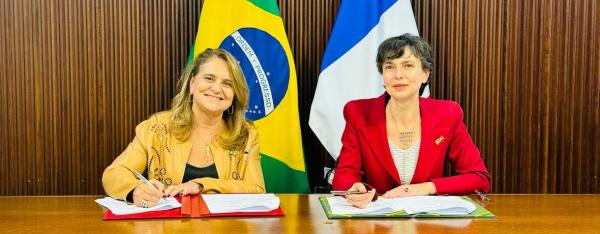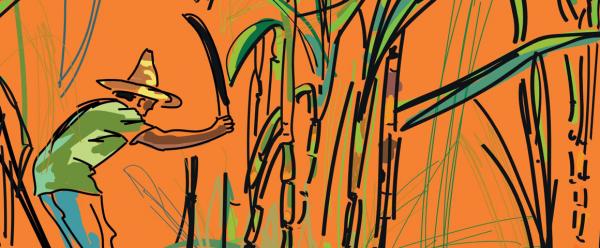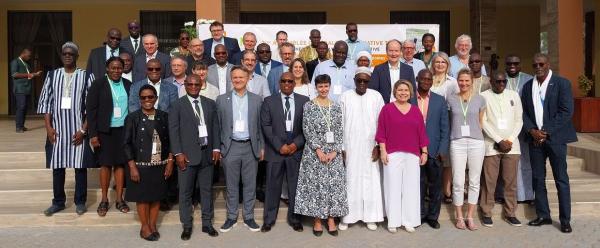Institutional news 3 April 2024
- Home
- Press area
- Press releases
- 20 ans de partenariat de recherche à Madagascar
Madagascar: 20 years of research partnerships for agriculture and biodiversity preservation
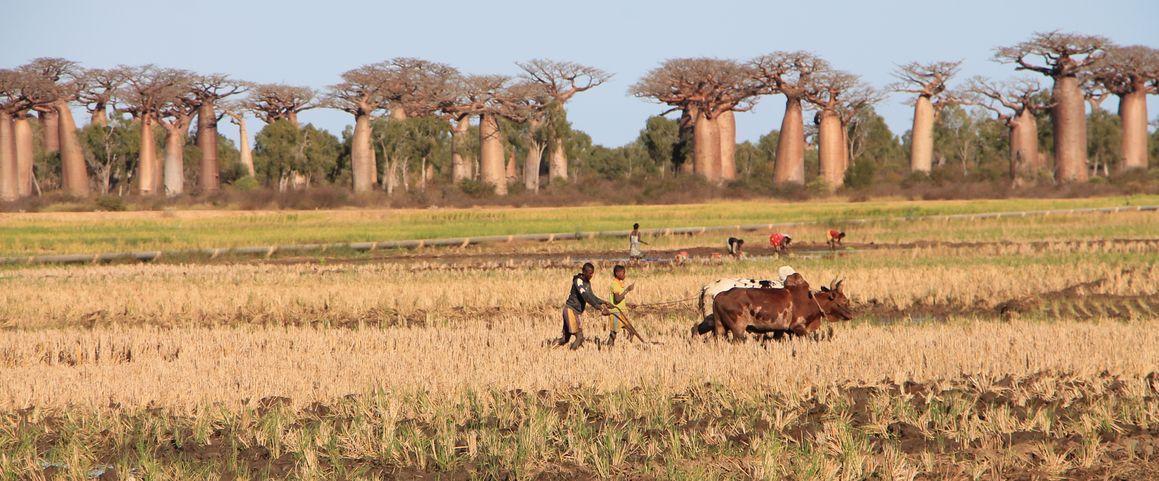
Reconciling sustainable agricultural development and biodiversity preservation, a research challenge CIRAD and its partners in LMadagascar have been working on for 20 years © E. Menguy, CIRAD
On 25 April 2024, the CEOs, Directors general and national representatives of CIRAD, FOFIFA, the University of Antananarivo, FIFAMANOR, Africa Rice, GSDM and IRD gathered to confirm their commitment by extending the partnership agreements covering two platforms: "Forests and Biodiversity" and "SPAD".
The platforms are characterized by their diversity and multidisciplinary approach. They have proved their efficacy and relevance for promoting sustainable farming practices and preserving biodiversity in Madagascar. Their renewal marks a new stage in our shared commitment to research for sustainable development in the country.
Long-term partnerships for a long-lasting impact
The platforms in partnership for research and training (dPs) are a type of national and international collaboration between research and development players, aimed at tackling the issues faced in their operating zones. These partnerships are marked by a long-term commitment on the part of the stakeholders involved, co-constructed research questions, pooled human and technical resources, and shared governance free from legal constraints.
CIRAD is currently working with 189 partners from 76 countries worldwide. Of the 20 dPs, two are exclusively based in Madagascar: "Forests and Biodiversity" and "Highland Production Systems and Sustainability".
The Forests and Biodiversity in Madagascar platform (F&B)
The platform looks into compromises between conserving and using forest biodiversity in Madagascar. Backed by the collaboration between the University of Antananarivo, FOFIFA and CIRAD over the past dozen years or so, dP F&B aims to make the forest socio-ecosystems of Madagascar less vulnerable and more sustainable, by generating knowledge and co-building expertise.
Over the past decade, dP F&B has played a major role in implementing the GELOSE act for the transfer of renewable natural resource management responsibilities to local communities. It has also contributed to the development of fuelwood tree plantings aimed at reducing the pressure on natural forests: 200 000 ha of eucalyptus and 50 000 ha of pines are now supplying the capital and other cities with green fuel and timber.
The dP has also helped boost knowledge of Madagascar's emblematic species and support their promotion, be they the six endemic baobab species, plants for use in pharmaceutical and cosmetic products, such as Centella asiatica, Aphloia theiformis and Ranvensara aromatica, or Madagascar's famous wild pepper, voatsiperifery.
Lastly, the dP has supported the development of export-oriented agroforest supply chains such as lychees, pink pepper and cloves, while helping to fight illegal rosewood exports.
Future research prospects centre on developing agroforestry systems that both provide ecosystem services and help conserve biodiversity.
The Highland Production Systems and Sustainability in Madagascar platform (SPAD)
This platform, founded in 2001, works to tackle the main challenges surrounding the sustainable development of family farms in the Madagascan mid-West and highlands. It involves seven partners: the University of Antananarivo, FOFIFA, GSDM, FIFAMANOR, Africa Rice, IRD and CIRAD, and focuses on agroecological intensification as a way of boosting production in a sustainable way.
The dP's activities include developing rainfed rice varieties tailored to various issues, determining how to make use of soil microorganisms, and characterizing the conditions for adopting technical and organizational innovations, among others.
This fruitful collaboration over more than 20 years has allowed the dP's researchers to respond to farmers' main requirements, notably by developing farming practices tailored to local constraints and environmental change.
























